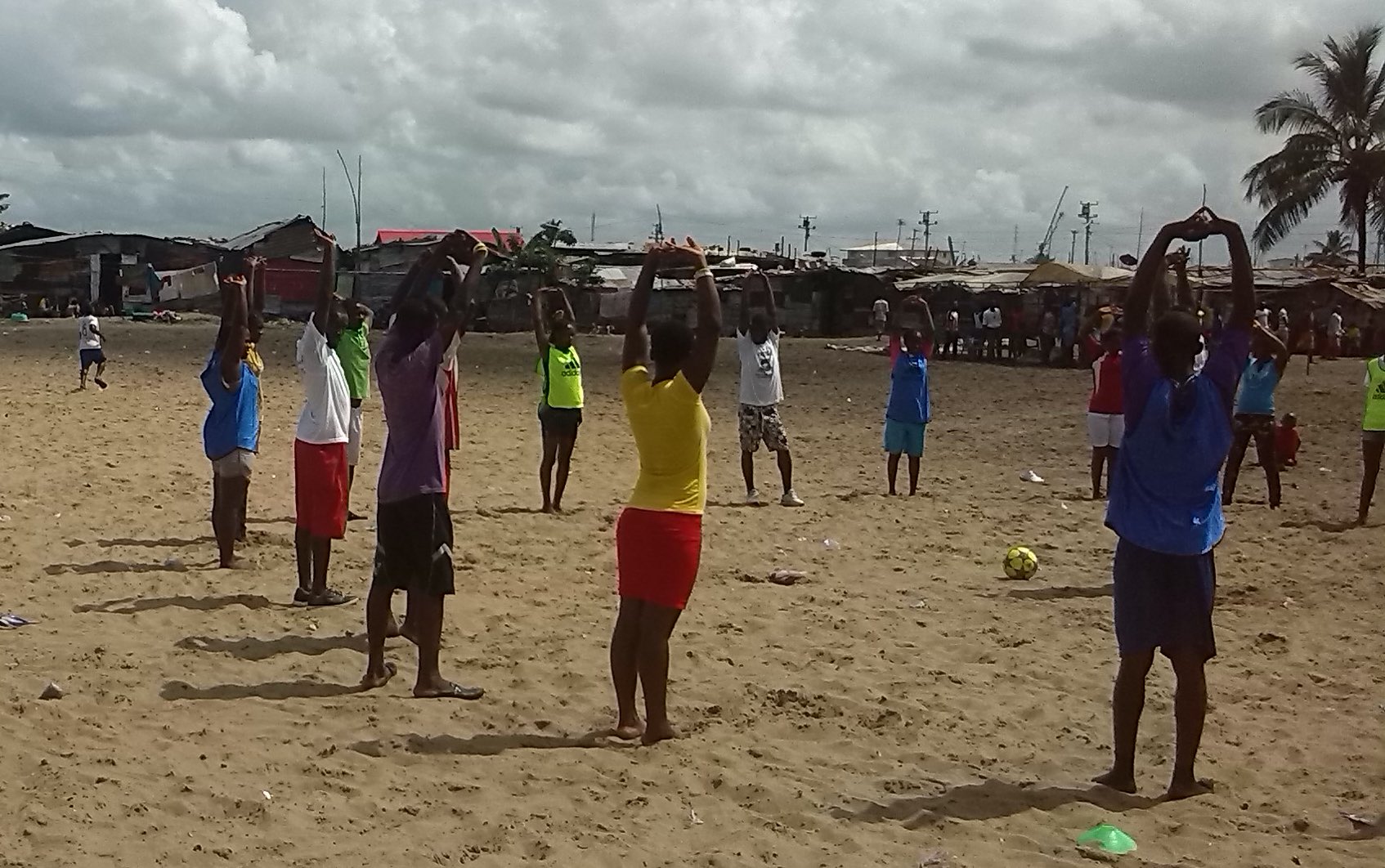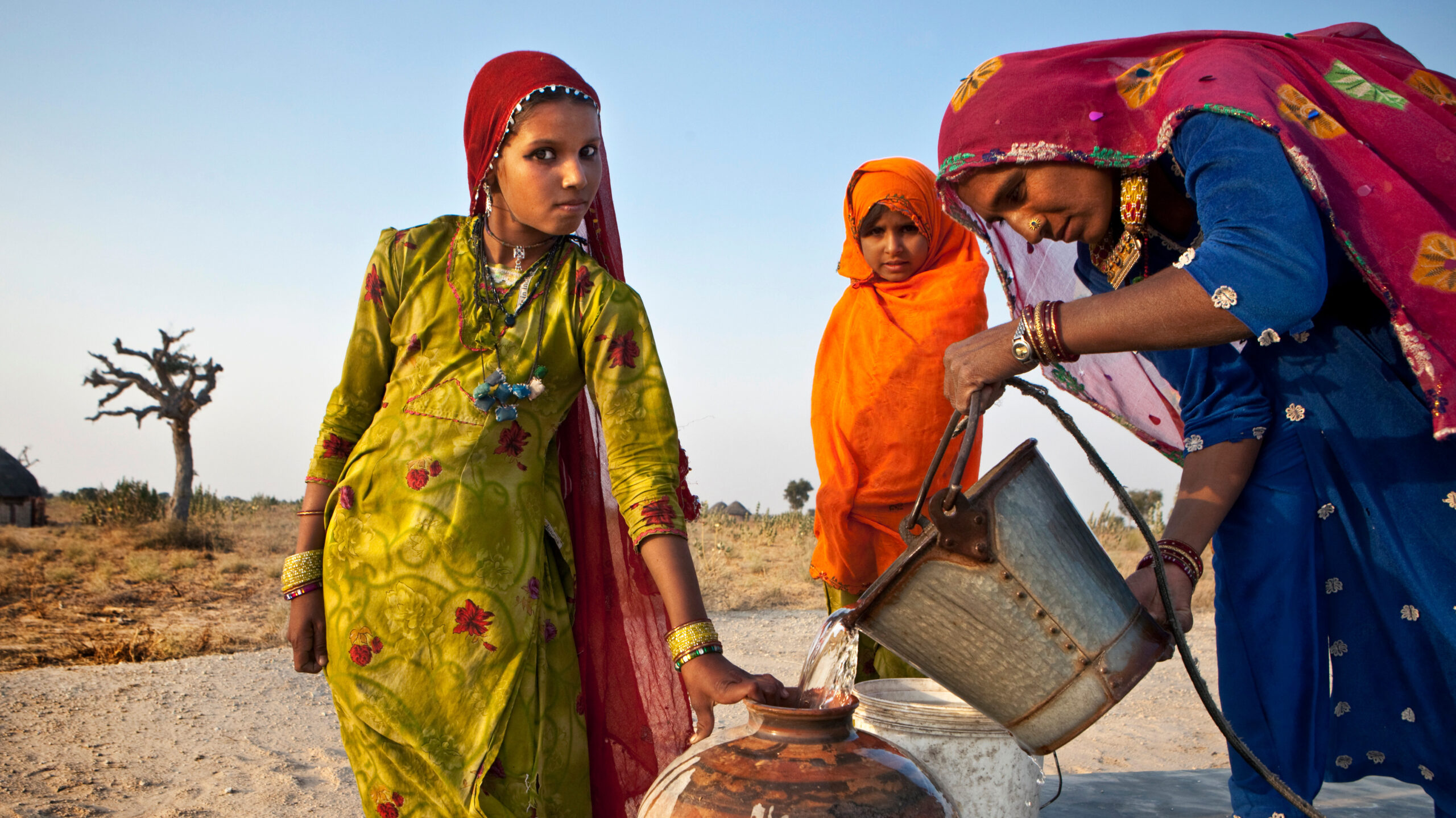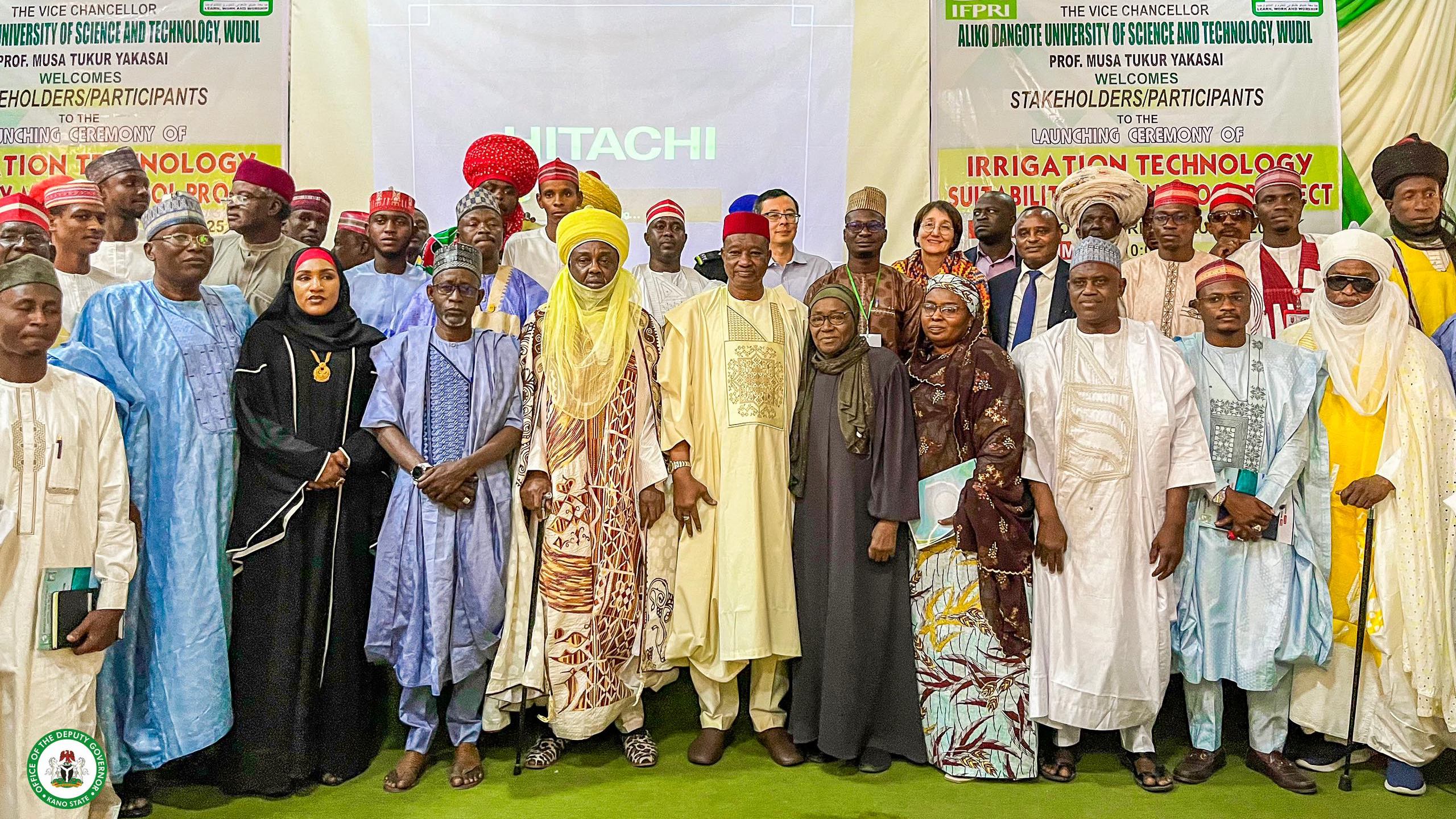Around the world, youth play sports wherever there is enough space to kick a ball or swing a bat: On fields, beaches, empty streets, or vacant lots. Few activities capture the excitement, energy, and imagination of youth as much as sports. Since the early 2000s, enthusiasm has grown for using sports to promote development outcomes, often focusing on at-risk and difficult to reach populations. Hundreds of millions of dollars are spent each year on such sport-centered programming in developing countries, engaging tens of millions of participants.
Sport and development (SFD) proponents frequently tout these programs as an effective form of direct intervention for at-risk youth as well as an effective entry point for complementary programs such as life skills training. In our forthcoming paper in Economic Development and Cultural Change, we evaluate the effects of a large-scale SFD program designed and implemented by Mercy Corps, a global humanitarian and development agency.
Our context is densely-populated, urban neighborhoods of Monrovia, Liberia, where policy makers and international actors have worried that failure to engage with youth and help them find productive outlets would risk destabilizing the country. In collaboration with Mercy Corps and Innovation for Poverty Action (IPA), we evaluated a sports and life skills program called Sport for Change (SFC), randomly assigning 1,200 eligible vulnerable youth to SFC programs and another 1,200 to a control group. We were thus able to measure the causal effect of the SFC program on a wide range of outcomes of interest.
The SFC program centered on the formation of youth groups to participate in a three-month, 16-session curriculum to promote life skills through structured physical and sport activities, and group planning of events. Similar to the claims of many other SFD proponents and practitioners, the stated aims of the program were to improve psychosocial or socio-emotional behaviors among participants, increasing their resilience and “readiness” for productive labor force participation.
Participation in SFC was high in all nine communities; 73% of youth assigned to an SFC group attended at least one session; 65% of all SFC-assigned subjects attended at least 80% of their group’s meetings. On average, the 1,200 individuals assigned to SFC attended 10.35 SFC sessions.
Although the program was well attended and enjoyed by participants, our analysis did not find evidence of positive program impacts on an aggregate index of psychosocial attitudes and behaviors that included perceived personal welfare, self-esteem, locus of control (self-determination), risky behaviors, and aggression. We also did not find evidence of increased resilience along these dimensions when program beneficiaries faced challenging life events.
Despite the lack of evidence for these initial steps in the proposed theory of change, we did find statistically significant increases in labor outcomes. Our results show an increase of 0.12 standard deviations in an aggregate labor force index among study participants, reflecting substantial average increases of approximately 12% in both labor supply and earnings for those invited to participate in the SFC program compared to those in the control group.
Given the scarcity of evidence around the relationship between SFD and labor market outcomes, these results are notable in their precision and magnitude. Yet in the context of this study in urban Liberia, the theory of change motivating SFD—where improvements to psychosocial outcomes are a predecessor to enhanced labor force opportunity—does not appear to have been the mechanism driving improved labor market outcomes in this setting.
To investigate further, we explored whether impacts of the program were different for different types of participants, to better understand who benefited from the program. The figure below shows that along all the dimensions that we analyzed (young, uneducated, female, un-trained), labor force benefits of the program were larger for more marginalized groups.
Our study raises questions that should be pursued in additional research. While the findings on labor force outcomes are encouraging, our inability to identify the mechanisms driving these results make clear the need for further research of similar programs in order to confirm this result and develop an understanding of how, why, and under what conditions SFD programs can be effective.
Lori Beaman is an Associate Professor at Northwestern University; Sylvan Herskowitz is a Research Fellow with IFPRI’s Markets, Trade, and Institutions Division; Jeremy Magruder is an Associate Professor at the University of California, Berkeley; Niall Keleher is the Director of Research at Research Improving People’s Lives. We thank Vaidehi Krishnan, Chris Maclay, and Chris Mazembe of Mercy Corps for their assistance throughout the project and in providing comments on this post. Please send any follow-up correspondence to Sylvan Herskowitz at s.herskowitz@cgiar.org.
This research was funded by the International Initiative for Impact Evaluation (3ie), the Swedish International Development Cooperation Agency, the International Growth Centre, and Mercy Corps.







